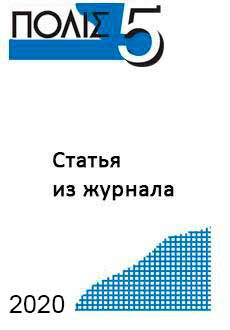Online shop of "Polis. Political Studies" Journal
We in the world, the world in us
Busygina I.M., Filippov M.G. Changing Incentives and Strategies of National Governments in Multilevel Governance across the European Union. – Polis. Political Studies. 2020. No. 5. P. 148-163. (In Russ.).
Free!
multilevel governance, European Union, national governments, cohesion policy, sanctions.
Decision-making mechanisms are becoming increasingly complex in the era of globalization, including more and more actors of different natures. The multilevel governance approach, as a promising analytical instrument that focuses on adapting decision-making processes to territories/sectors with multiple jurisdictions, has been recognized both due to its limitations in the explanatory power of normative integration theories as well as due to empirical studies of European integration. This approach provides better explanations for the strategies of political actors in the European Union in situations when the same actor uses different strategies at different institutional levels – supranational, national, and regional. Being autonomous, these levels are strategically interconnected: key actors take into account the consequences of interaction at all levels, but attach different priorities (weights) to the results of various “games”. Depending on the opportunities for collaboration at various levels and the perceived relative importance of the achievable results at each level, such links between games can lead to strategies that may seem suboptimal to outsiders. In this article, we consider the strategies of the national governments of EU member states, studying the cases of external decision-making as well as cohesion policy using the multilevel governance approach.
 English
English Русский
Русский

Reviews
There are no reviews yet.